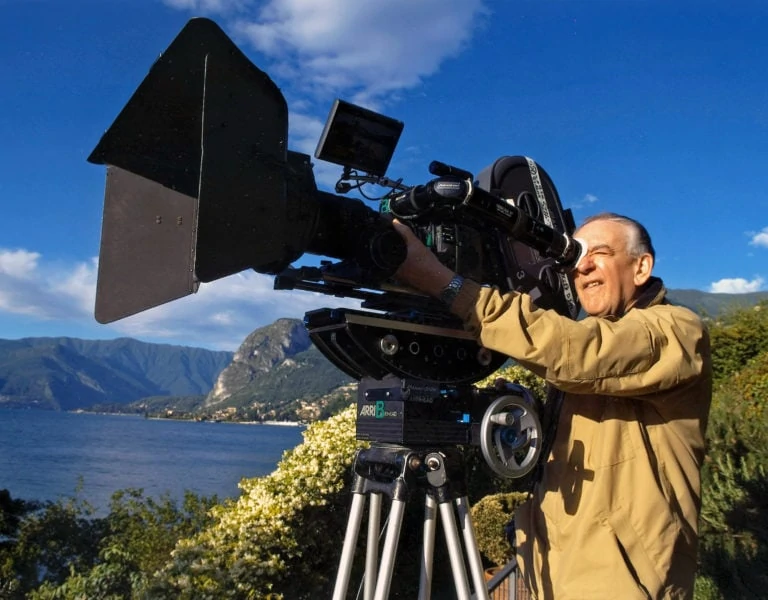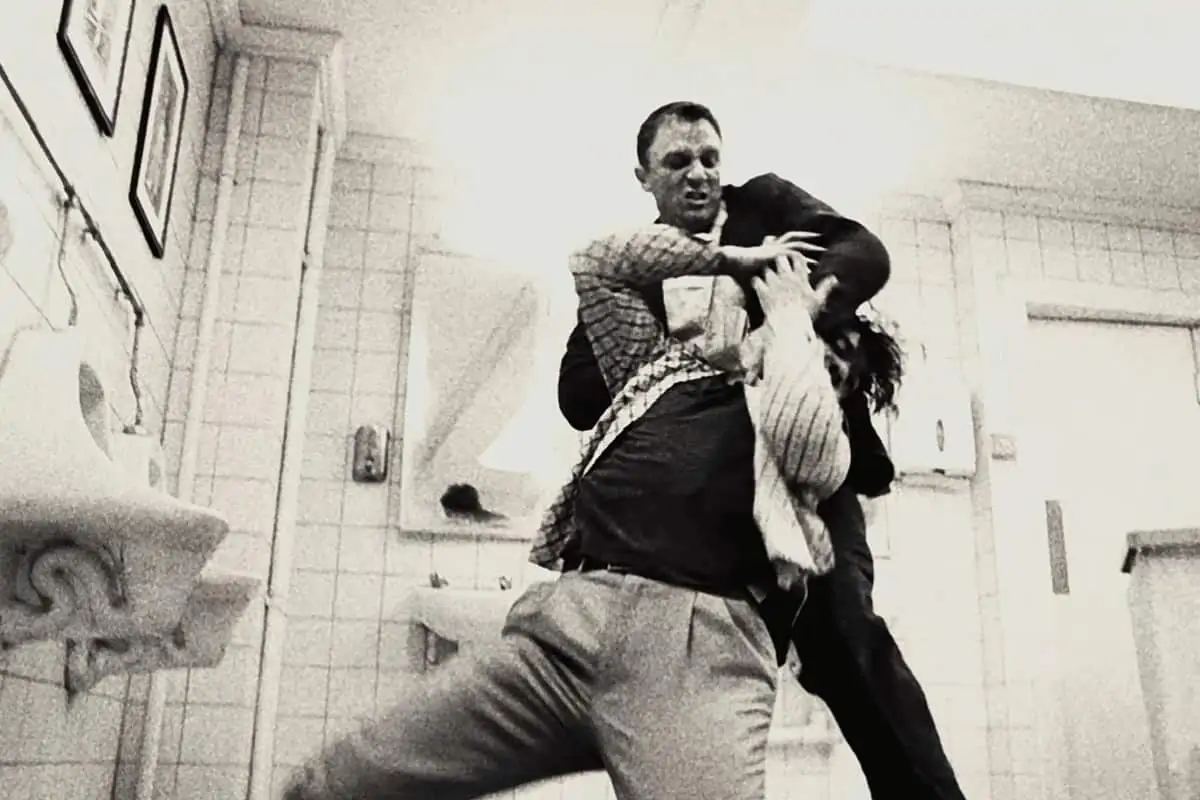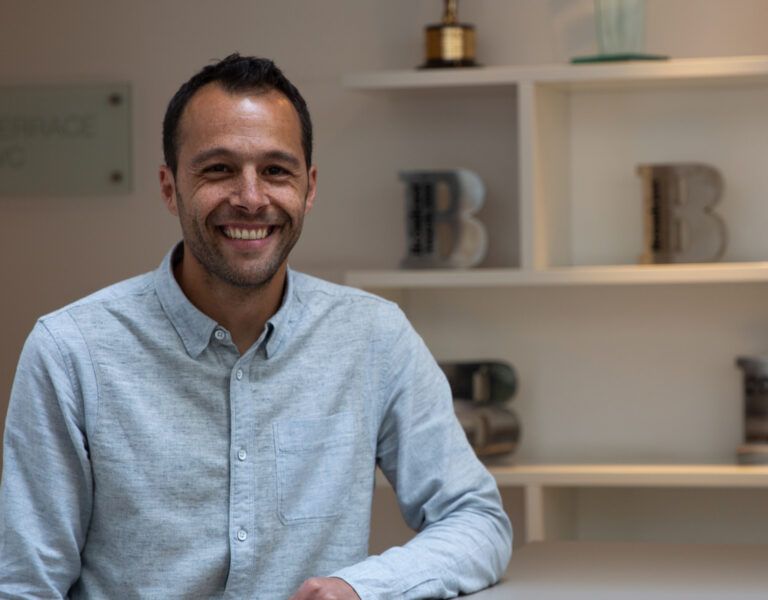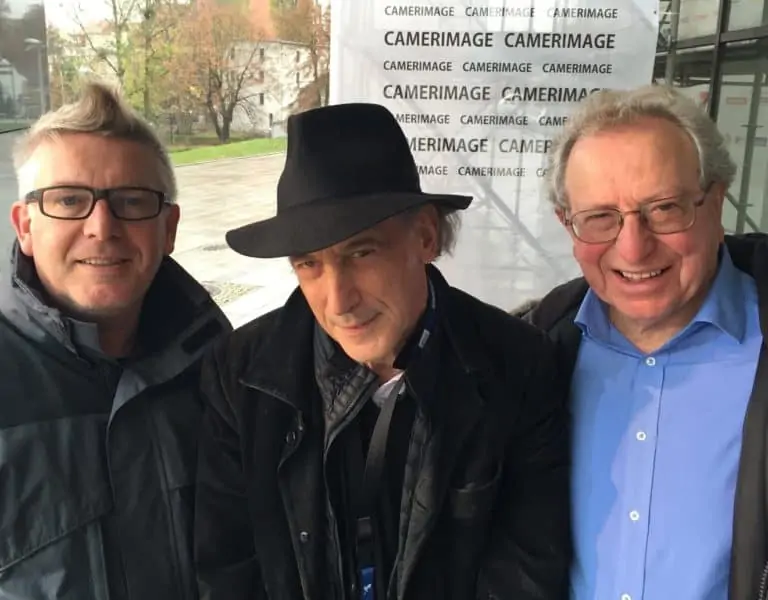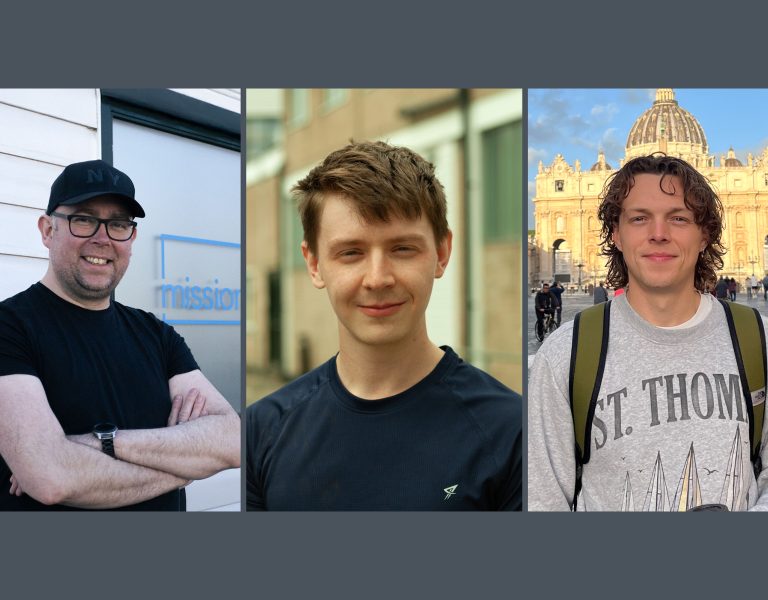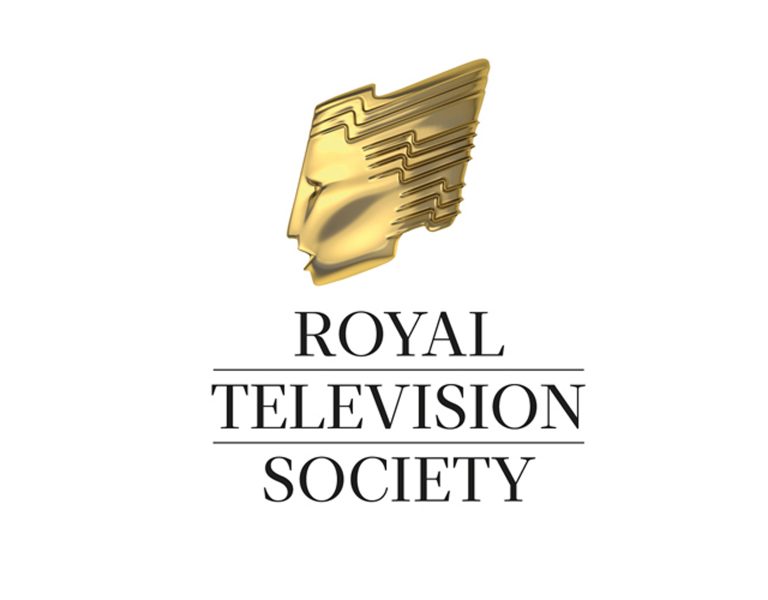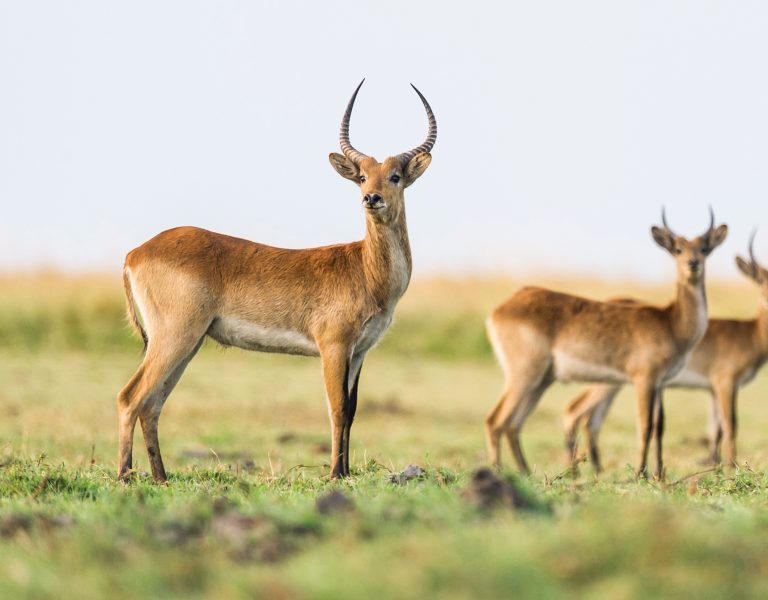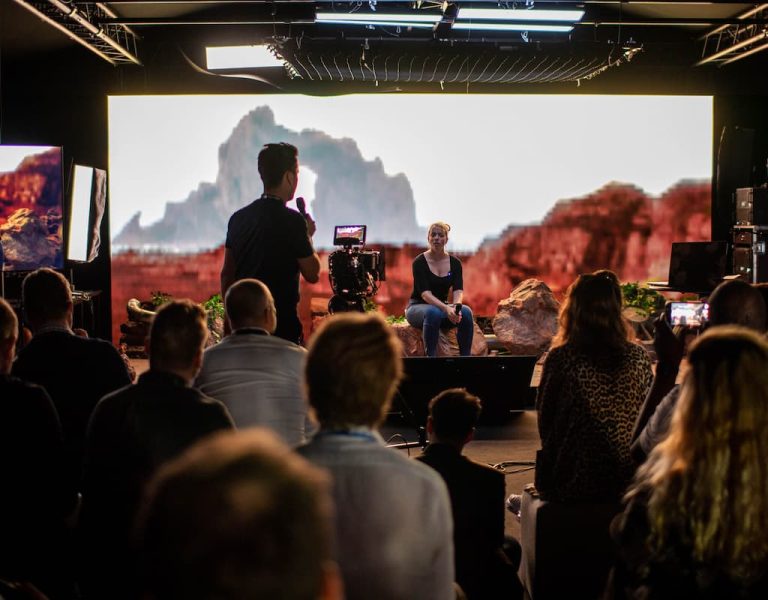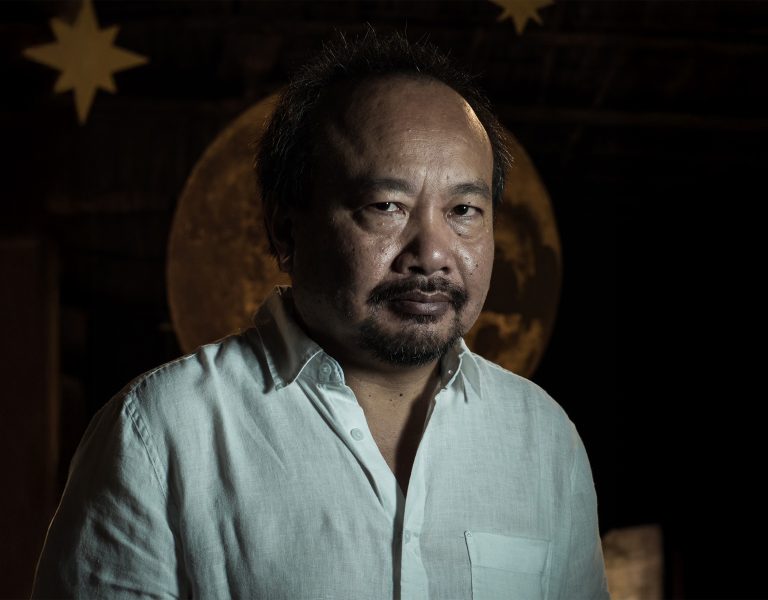
In the latest edition of the VFX and Post Talent Agency’s ‘Meet the Editor’ Q&A series, hear from editor Phil Eldridge about his career.
How did you get into editing?
I always wanted to work in film, but I wasn’t quite sure where to start. My first job was in a TV post production role on a reality series. I just found my way to the cutting room from there. I then met up with a guy who got me a job in a post facility and from there I started meeting editors and I became an assistant. That’s kind of how I found my way through to editing.
I always found editing a comfortable and engaging thing to do, it appeals to my personality and it was a nice environment to work in, so it wasn’t purely chance but it was like finding the right fit within the wider film community.
What were your career aspirations when you were growing up?
I was passionate about films from the moment I started watching them, and as soon as I found out that it was a real job you could do, I didn’t really think about doing anything else. I then did a degree in film studies but it was broadly academic with a lot of critical theory and film history but not much practical work. I kind of knew I wanted to work on the practical side of it, but I didn’t have much experience so I just threw myself into it.
What inspires you? What gets you out of the bed in the morning?
My four-year old daughter!
Beside that, I love my job. I have been really blessed. I have worked on some amazing projects and with really amazing people and that’s really the main thing. I find inspiration for my work everywhere and when I am away from it and in the middle of something else I think about it constantly and I go in to the next day with these ideas that I have been processing into my mind. Sometimes I cannot sleep and the first thing I want to do is to get those ideas down before they fall out of my brain.
What’s your favourite part of the job?
I think it’s part of my personality that I quite enjoy collaboration. Sometimes I go on-set if I’m needed but I’d rather work in a room with a smaller group, the director or VFX supervisor and do that one-to-one collaboration. It’s like some people have a writing partner and bounce ideas back and forth between themselves and I find that a very productive way to work and just really rewarding. I feel like I get to know people really well in that environment.
I love the people I work with. I have been very lucky. I have been working with wonderful assistants, wonderful editors and wonderful crews. It can be a really sociable fun job and that’s a lovely thing to do. Sometimes it doesn’t feel like work, it feels like you go hanging out with your friends and make movies.
My mum once told me: “If you find the job you love doing, then you never have to go to work.” It’s a great way to think about it.
What’s your greatest achievement/most important step in your career?
I like to think that the greatest achievement hasn’t happened yet! But there’s been noticeable landmarks. I cut my first feature when I was maybe 27 or 28 and then I have taken this long side step into visual effects Editing. One of the first films I worked on as a VFX editor was Gravity which won so many awards and it’s still such a touchstone as a film that people remember. That was really great. I then got contacted by Marvel to go into the production-side of things. That was the first time I was working on-set and doing pre-production, planning all the previz and actually developing the sequences that are in the movies now. That was for Avengers 2, one of the biggest films ever at the time, so it was quite a big step. Then recently I’ve had the pleasure of working alongside Wyatt Smith on The Little Mermaid, and I was promoted to Associate Editor because of the amount of work I put in developing the VFX sequences. It was very rewarding and it felt like that was the right time for me to get back to editing.
How did you transition from editor to VFX editor to editor?
I have been gravitating towards this transition for a while. It felt like the editor inside myself was nudging me like: “You should go back to editing, you’re good at that.”
VFX editing includes two kinds of jobs. You have the very technical side of things: turning over shots, managing things, but you are not doing really creative work, it is more like databases, checking and management – which I quite enjoy as well, I’m a bit nerdy. Then, you have the other side of things which I tend to gravitate towards, which is doing these big jobs with all the previz sessions that happen in pre-production before the editor is there. Planning out the sequences, doing precise design for something that is going to be shot by a second unit or these big visual effects sequences that the director wants to nail down before filming. So when they go to film them, they already know how it’s going to look and that is like the creative editing side of things. I had been noticing I had enjoyed that aspect more for a while.
Therefore, the aim now is to go back into editing after being a VFX editor for a while. It is unusual that I started out as an editor and then became a VFX editor, usually it’s the other way round. There are people that would rather have a career in VFX editing, because they want to manage cutting rooms and visual effects, which is great because it is an awesome career. I just personally enjoy the decision making and creative part more, so the more of that I can do, the happier I’ll be. Having been an editor before it’s like bringing those skills back to the fore, it’s not like I will be doing anything I haven’t done before!
Looking back at all the films/projects you’ve made, what have you learned?
Every job I have been on, I’ve learnt different things from different editors and professionals I worked with, because everyone has a different style and set of skills. I have worked with very technically-minded people who know a lot about the technicality of compositing and the visual effects process, and supervisors who come from the vendor side of things. They really know the details of the work that has been done in VFX. It’s a great skill to have, because it means that when someone says to me, “we turned the shots over 4 weeks ago, what’s happening with that?”, because I understand the process of what is going on I can say “well it’s probably at this stage of production, it’s probably going through matchmove, they have done a layout or they are still building the environment and they are probably doing the animation right now.” Knowing the kind of timeline of the process has been really helpful.
But then again, I’ve also worked with these editors that are not from a VFX background and they came from somewhere else completely, maybe from a musical background, so you learn so much about music and rhythm. I like to think that these are all skills I will always have in my head, as a sort of repository of different techniques and ideas from different people I have been lucky enough to work with.
Most valuable skill?
I am very calm and patient. I’m happy to try out ideas, and spend time exploring the material. Sometimes the best ideas can be counter to your own intuition – it’s always so important to listen to what other people have to say. It’s just so easy to slip into a trap where you don’t open yourself up to other opinions. It’s very rare that I’m the smartest person in the room, but the best thing to do is just listen to everyone, it’s so important – I think a good editor should be able to spot a great idea, wherever it comes from.
Favourite project to work on?
The one I most enjoyed working on probably was Solo: A Star Wars Story. It was really fun but super high pressure. I was exhausted but it was such a thrill to do a Star Wars movie. The director was so lovely and the team was so great. Then I got to live in LA for a year and work at the Disney Studio. It was quite magical. I was asking myself, “So this is working in film? Walking along the beach in LA!?”. It was a great experience, but it was really hard work, one of the hardest jobs I have ever done, but a real thrill to make a movie like that.
How about your favourite movie to watch back?
Firstly, it is very rare that I watch stuff afterwards because I would have seen it like a thousand times, but I have occasionally. I watched Star Wars recently and I thjik it’s underrated, I really think it’s one of the good ones. I haven’t gone back and watched The Little Mermaid again since the cast and crew screening, but I obviously will because of my daughter. She was one of the big draws of doing that movie actually. I did a lot of Marvel sort of stuff aimed at teenagers, but I didn’t work on anything that was close to my daughter’s age. I am very excited to show it to her, but I may wait another year. She is very good with The Little Mermaid animated film right now, but the live action is just a bit too scary. She knows all the songs already though. When I was working from home she would come and sit on my lap, and she memorised them all. I am very excited to show her that and then I imagine we’ll watch it again… and again… and again!
What’s your next project?
After I finished The Little Mermaid, the plan was to find something as soon as I could in editing to kind of hit the ground running. Obviously, the strikes got in the way and everything got delayed and shut down. I have been lucky I kept busy through the year kind of picking up other people’s TV shows and just helping them deliver. I hadn’t really done much TV before, so it was kind of an interesting change anyway. I did a TV show for Apple and then one for Amazon – which I finished a couple of weeks ago. I have also been working on a short film that I edited a couple of months ago. We just finished its post production, we had the cast and crew screening a few weeks ago and it will be doing festivals later this year.
What are your future goals?
I don’t know. The landscape has changed a lot. The last time I was working as a full-time editor there was no Netflix or Amazon etc… None of those high-end TV streaming platforms existed. There are a lot more opportunities in TV now, a lot more interesting things. Eventually, I’d love to go back to film because it was my initial passion, but I imagine myself in TV now, but I don’t know where, because I have never done anything like that. I think there’s going to be so much starting up in the new year, I’m just excited to get my teeth into something!
What are your passion projects that you do besides paid work?
I have been working on a couple of things. I have already alluded to this short film that I just cut, which I am really excited to see in festivals next year. Then another thing I am working on is a handbook for assistant VFX editors. I was recently working with an assistant editor who was part of ‘The Rough Assembly’ – a group affiliated with BECTU. They have been trying to provide a little bit more training and tools for people coming into editorial roles for the first time, by writing an ‘Assistant Editors Handbook’. It’s basically just a big list of stuff that they should be learning, links to resources and an opportunity to track and monitor their own career progression.
Now I am working on its companion piece for people moving into assistant VFX editing to make sure that they are developing all the key skills that are necessary to then progress to be seniors VFX editors. As you can imagine, some of the skills are the same as other people in the cutting room, as they are using the same equipment, they generate quicktimes and import dailies, but some are very different. We realised that people come to this role from these two very distinct backgrounds. Some come from cutting rooms and know a lot about how these environments work, and then you have those who have worked on the vendor’s side of things, and understand what happens to the shots but they don’t know how cutting rooms work. So there’s very little overlap in the skills these between two very distinct groups of people, all coming into the same job. I feel it is really important to make sure that the editorial people learn the vendor’s side of things and vice versa. Therefore, we are working to put all the documentation in one place as a resource to help train people coming through. Now that I am leaving VFX editing, I want to leave some sort of legacy behind. I like to think that I have trained my assistants really well and it is something I have always been passionate about. Every single one of them has thrived and now are lead VFX editors on big projects, which is great so hopefully this will be a really useful resource for new people coming through.
And finally, I’m setting up a local film club screening independent and foreign language films. This is more like a passion project. Where I live in Teddington, surprisingly there is no cinema, which is weird because there are a lot of film people living round here. I have started working with a local theatre which happens to have some good projection and sound equipment. It’s called Teddington and Hampton Film Club and the first screening is in March. The website went live in December and we’ve sold almost all the tickets already, so that’s quite exciting!
Has the post production industry evolved during the pandemic or in recent years? How?
Obviously lots of changes have happened since COVID. There is a lot more remote work happening now, which is good because it allows a lot more flexibility with people’s lifestyles. It is something I will keep pushing for, especially as a father of a young child. I need flexibility in my life because my wife works full time as well. I also hope people will be seeing solutions to what has always been an industry problem: you work long hours and there is no question about that. Hopefully those changes will be coming as well. But also in terms of the actual work, there is all this high-end TV now and there is so much work with VFX in that. I think that people with strong technical knowledge that understand these processes will be more and more in demand, particularly on the TV shows where you have to turn things around very quickly and understand the processes from an early stage to make the process smoother.
You recently joined the VFX & Post Talent Agency, what made you become part of it in the first place?
I have only recently joined, but I have worked with Harriet Donington for 12 years. I was the first VFX editor she ever represented and we have been really close for a long time now. When she set up her own agency she wasn’t initially representing editors and I already made the decision at that point that I wanted to focus on editing, so with a heavy heart I had to say that I couldn’t come with her. When she recently decided she would represent editors, I jumped at the opportunity, because she means a lot to me and she has been so central to my career for more than a decade now. I couldn’t give up the opportunity to keep working with her.
Has the agency helped you to get closer to your dream job?
So many of my jobs have come through Harriet and she is so great at negotiating, which is not something I am very good at. We have complementary skills. I am good at doing the work and I get a good reputation from it and she is amazing at finding the right jobs!
